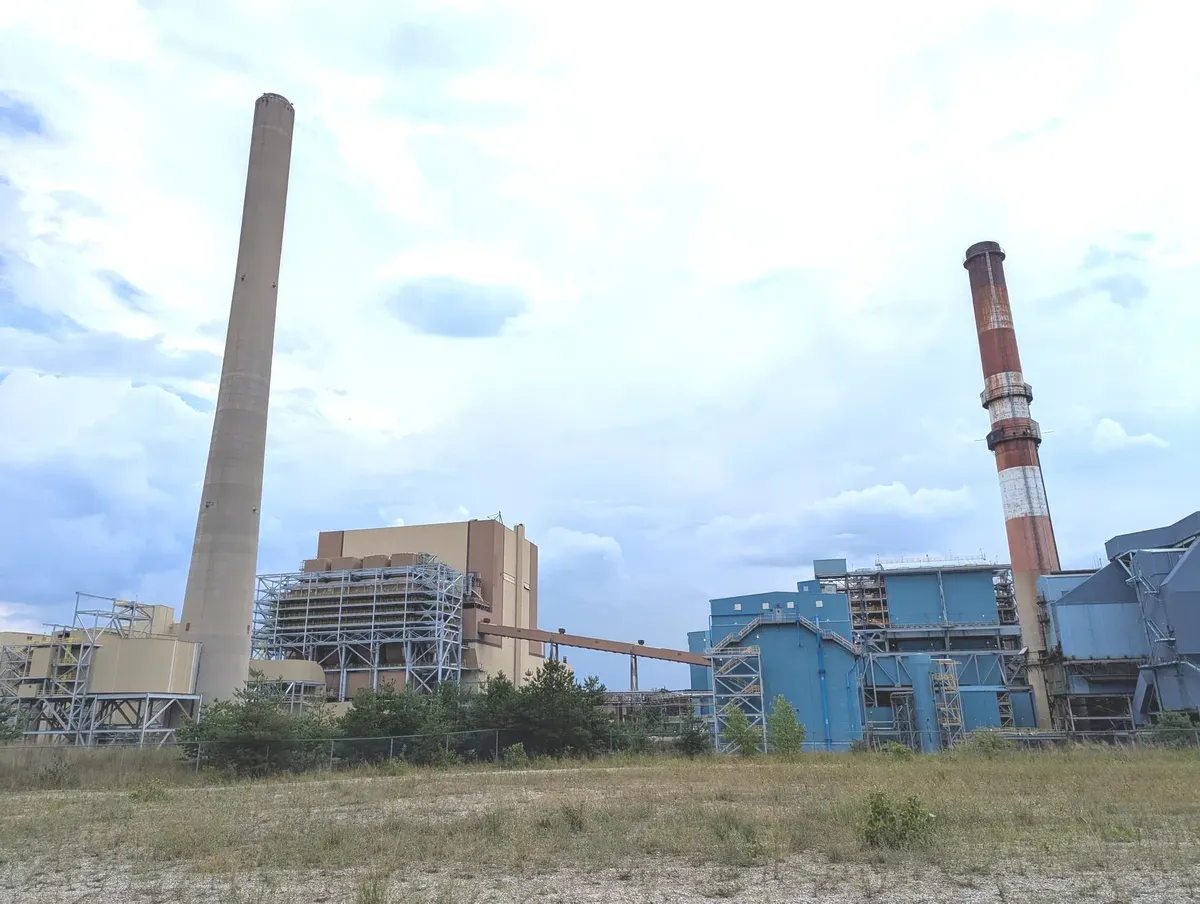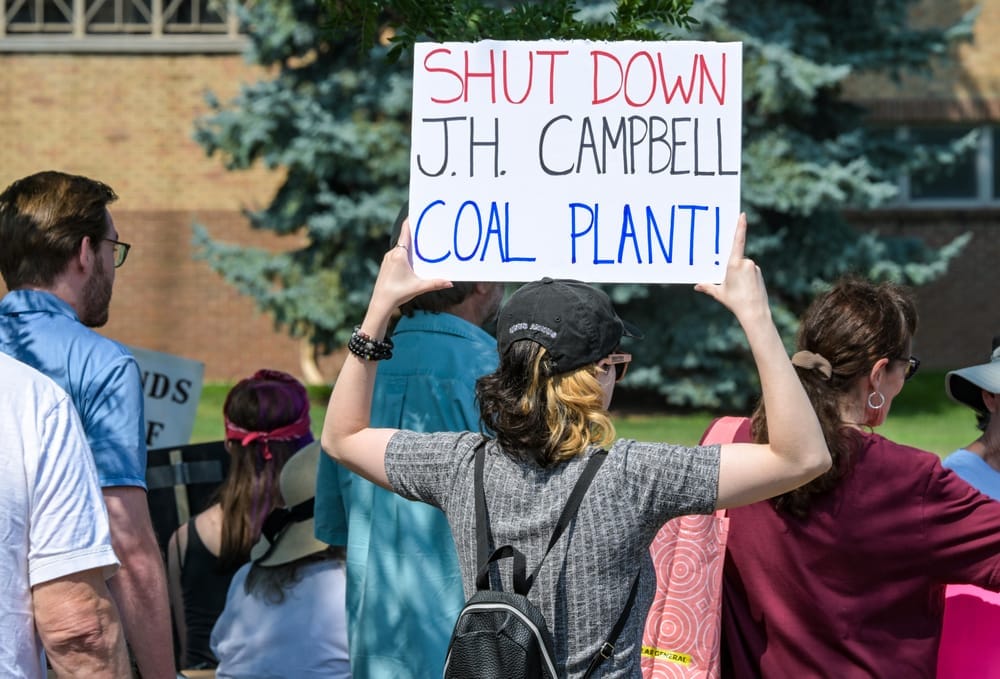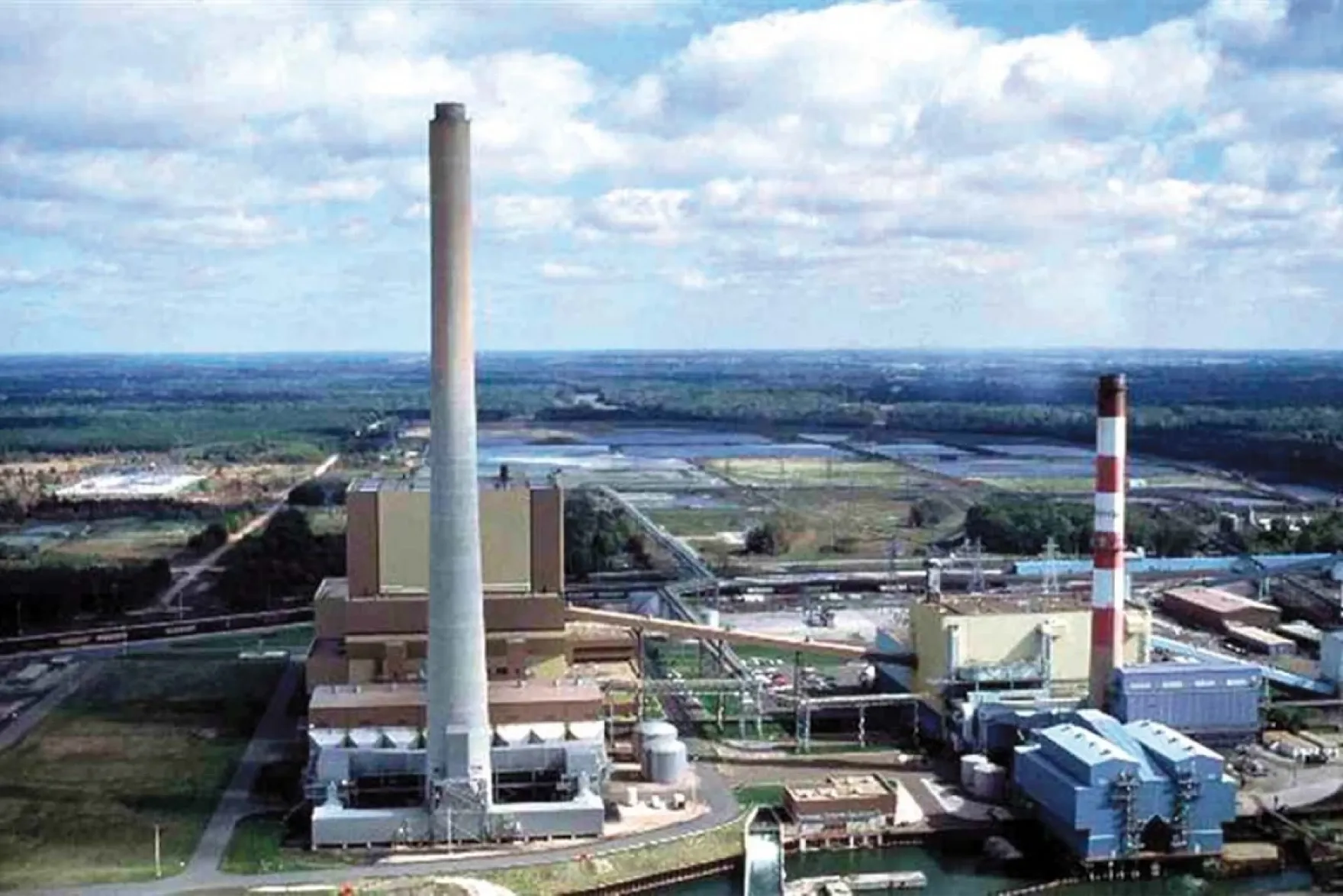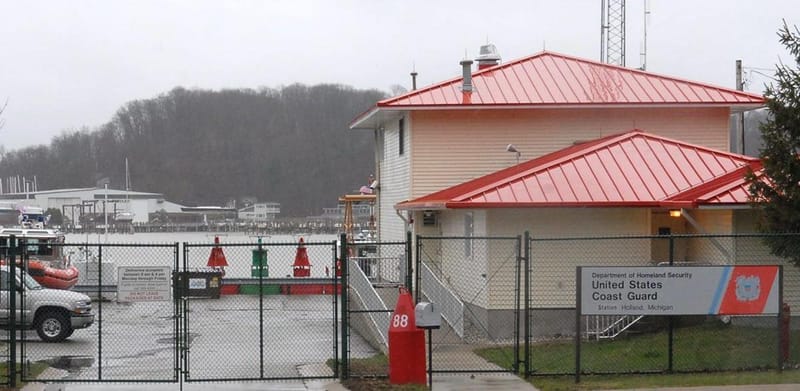Nessel challenges latest order forcing Campbell plant to remain operational through February
Michigan Attorney General Dana Nessel has filed a motion to halt the U.S. Department of Energy’s third order to stop the long-planned retirement of Consumers Energy’s J.H. Campbell coal-fired power plant in Port Sheldon Township.
Story Summary
- The U.S. Department of Energy has issued another 90-day extension ordering the J.H. Campbell plant to remain operational through Feb. 17.
- Michigan Attorney General Dana Nessel’s office filed a motion to stay, or halt, the order and the right to legally intervene, adding to the multiple court filings challenging the plant’s continued operation.
- Consumers Energy, which owns the plant, said in financial filings that the daily cost of operation the Campbell is over $600,000; the plant has now been operating 271 days past its planned shutdown date, meaning costs are reaching $162,600,000.
PORT SHELDON TWP. — Michigan Attorney General Dana Nessel has filed a motion to halt the U.S. Department of Energy’s third order to stop the long-planned retirement of Consumers Energy’s J.H. Campbell coal-fired power plant in Port Sheldon Township.
On Tuesday, the DEO issued a second renewal of a 90-day emergency order first issued on May 23; the first extension was ordered Aug. 20.
Read More: Department of Energy extends delay of Campbell coal plant's closure another 90 days
The latest order, which directs the Midcontinent Independent System Operator and Consumers to ensure the Campbell plant "remains available for operation, minimizing any potential generation shortfall that could lead to unnecessary power outages," will now keep the Campbell operating until Feb. 17.
"Additionally, MISO is directed to take every step to minimize cost to the American people," U.S. Energy Secretary Chris Wright wrote in the latest order.
That could prove to be a tall order, as experts say the continued operation of the plant costs over $600,000 per day.
According to financial filings from Consumers Energy, the emergency orders have caused the coal plant to incur over $80 million in losses as of Sept. 30. At 271 days past its planned retirement date, the plant has now cost approximately $162,600,000.
Those costs are expected to be recovered from customers within the MISO grid, which includes Michigan, Illinois, Indiana, Iowa, Kentucky, Minnesota, Missouri, Montana, North Dakota, South Dakota and Wisconsin.
"This is a huge mistake. It's horrible for the environment. It's horrible for people in Western Michigan," said Alex Kellogg, federal energy accountability manager for the Michigan League of Conservation Voters. "All this is doing is increasing our energy costs at a time when the price of everything is skyrocketing."

How we got here
The plant, operating since 1962, was originally scheduled to close partially in 2030 and wholly in 2040. But the utility announced in 2021 that it was moving the plan up by 15 years for an operations end date of May 31, 2025.
Consumers has said closing the plant was expected to save Michigan ratepayers $600 million by 2040.
Read More: Consumers Energy reaches agreement to close Campbell plant, end utility's coal use by 2025
The utility was seeking to end coal use altogether by 2025 as part of its goal to achieve carbon neutrality.
On May 23, Wright issued the first federal order to ensure that the 1,560 megawatt plant "[remain] available for operation, minimizing any potential capacity shortfall that could lead to unnecessary power outages."
The Energy Department said the emergency order is authorized by Section 202(c) of the Federal Power Act and is in accordance with President Trump’s Executive Order: Declaring a National Energy Emergency to ensure that power generation availability in the region does not “dip below 2024 capacity levels.”
The order came just eight days before the plant was scheduled to shut down.
Wright said the move was intended “to minimize the risk of blackouts and address critical grid security issues in the Midwestern region of the United States ahead of the high electricity demand expected this summer.”
In June, Nessel — along with a collective group of public interest organizations, Minnesota and Illinois, Maryland Office of People’s Counsel, and the Organization of Midcontinent Independent System Operator States — challenged the DOE's order, arguing that the move will force customers to absorb exorbitant costs.
Read More: AG Nessel takes challenge to DOE's order to keep Campbell plant open to Court of Appeals
Nessel filed a request for rehearing with the DOE, challenging what she described as an "arbitrary and illegal order seeking to stop the planned retirement of Consumers Energy’s J.H. Campbell coal-fired power plant in West Olive, Michigan, under the pretense of a fabricated energy emergency."
When the DOE didn't respond to Nessel's request within 21 days, she filed a petition for review July 24 with the U.S. Court of Appeals for the Washington, D.C., Circuit, challenging the U.S. Department of Energy's order, claiming the "arbitrary and illegal" move forced the continued operation of the plant "under the pretense of a fabricated energy emergency."
Nessel also filed a pleading before the Federal Energy Regulatory Commission in response to Consumers’ request to recover the costs of running the Campbell plant beyond its initial retirement date.
Attorneys General from Minnesota and Illinois and a coalition of public interest groups, including the Environmental Defense Fund, are also challenging the previous DOE mandates in the D.C. Circuit Court of Appeals.
No rulings have yet been issued.
What's happening now
In her latest filing, Nessel said the latest DOE order relies on an outdated North American Electric Reliability Corporation winter reliability assessment to support its claim justifying the emergency order.
The latest filing is a motion to stay, a formal request to temporarily pause or suspend legal proceedings or the enforcement of a judgment or order. Nessel also filed a motion to intervene, a legal request by a non-party to join an ongoing lawsuit because they have a significant interest in the outcome.
The DOE claimed the current winter assessment had not yet been issued. The current NERC winter report, which was publicly released hours before the DOE's latest order, showed sufficient electric generation for the MISO region, meaning the grid has sufficient resources to meet electricity needs even in situations with extreme levels of demand and generator outages.
Nessel said the latest energy report undermines the justification for keeping the Campbell plant operational.
“DOE is using outdated information to fabricate an emergency, despite the fact that the truth is publicly available for everyone to see,” Nessel said in a prepared statement. “DOE must end its unlawful tactics to keep this coal plant running when it has already cost millions upon millions of dollars. My office will continue to fight back against these arbitrary orders and ensure residents aren’t forced to foot the bill for these unreasonable costs.”
The Trump Administration has asserted that coal is a “reliable” fuel source. A 2024 NERC report, however, shows that coal experiences the most outages from equipment failures of any power source in the U.S.
According to court filings by environmental groups, the Campbell plant partially broke down in June and only one unit was producing power because another unit had been broken for weeks and the third abruptly shut off.
Despite that, "MISO had a surplus of resources greater than 10 times the power provided by Campbell because the grid operator and utility were prepared for its retirement," according to the filing.
Experts say the continued operation of the plant is not only costly, but continues to pose health risks for residents.
"All it's going to do is pollute our environment and harm the health of people living in Western Michigan. There's no science or economics behind this decision that makes it make sense," Kellogg said.
“Mandating aging, unreliable and costly coal plants to stay open past their retirement is a guaranteed way to needlessly hike up Americans’ electricity bills and make air pollution worse,” Ted Kelly, director and lead counsel for U.S. Clean Energy at Environmental Defense Fund, said in a statement. “These half-a-century old plants are simply too expensive to operate, too dangerous for our health and break down too often to be counted on.
“EDF and allies will continue to fight these illegal and completely unnecessary emergency orders in court,” Kelly said.

What happens next
While the various court filings wind their way through the courts, environmental groups and residents are continuing to voice their opposition to the plant remaining open.
Several protests were organized in Ottawa County over the summer, demanding the closure of the plant and that elected officials challenge the emergency orders.
"We are standing here today to stand up to the Trump Administration to tell them, 'Get this coal plant shut down, to re-shut it down, to listen to local folks, to listen to Michiganders, to listen to the utilities that have already scheduled this closure, instead of propping up a coal plant that doesn't need to stay open," state Rep. Stephen Wooden, D-81, said at an Aug. 12 protest.
On Aug. 15, more than 100 residents marched in front of U.S. Rep. Bill Huizenga's downtown Holland office.
Kellogg said the LCV will continue to push lawmakers to call for the Campbell's closure.

"We're calling on members of Congress, especially Bill Huizenga, to do something more to stop this reckless order that's just skyrocketing our energy bills," Kellogg said. "So far, he's been a cheerleader and supportive of this order that's jacking up our rates, and we'd really like to see that change.
"We've been supportive of the State Attorney General Dana Nessel's lawsuit against the administration for this false emergency order, and we love seeing her try to protect rate payers in Michigan," he said.
A complicating factor could be conversations surrounding large data centers that are cropping up across the country to better support the artificial intelligence boom. The centers, which consume massive amounts of energy, are driving up U.S. energy consumption, which hit an all-time high in 2024, according to the Pew Research Center.
Kellogg said there are responsible ways to build the centers.
"When it comes to data centers, our position has been that we want to really protect rate payers from the really huge operational costs," he said. "We want to make sure there's guardrails in place to protect the environment from the potential impacts of data centers. Renewables are already proven to be cheaper and better options than coal, which just can't compete in this market anymore. We want to ensure when data centers are brought online, that renewable energy is what powers them."
Kellogg said growing demand only buttresses the argument to add more cleaner, greener and more sustainable energy sources to the grid.
"Coal can't compete in today's market. The best way to add capacity to our electric grid is to build out more renewable sources such as wind and solar. They're cheaper, they're better for the environment," he said.
"But this is a lot about cost," Kellogg said. "We already pay the highest energy costs in the Midwest for some of the worst service in the country, and all this is going to do is make our energy costs rise."
"It's going to cost ratepayers dearly. This plant closure was supposed to save $600 million to Michiganders by 2040 and that's already being eaten into quickly; it's just terrible news. We're going to keep up the fight. We'd really, really like to see more lawmakers take a stand, because something needs to change," he said.
— Sarah Leach is the executive editor of the Ottawa News Network. Contact her at sleach@ottawanewsnetwork.org. Follow her on Twitter @ONNLeach.






